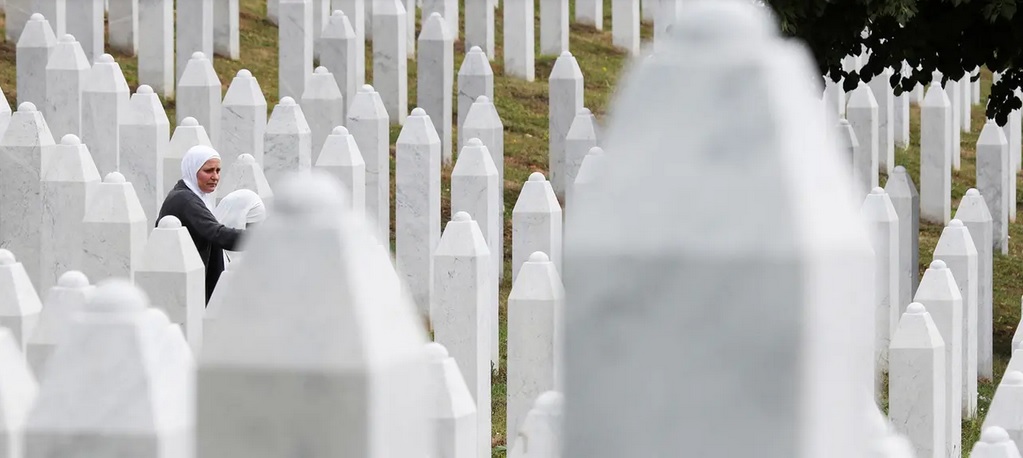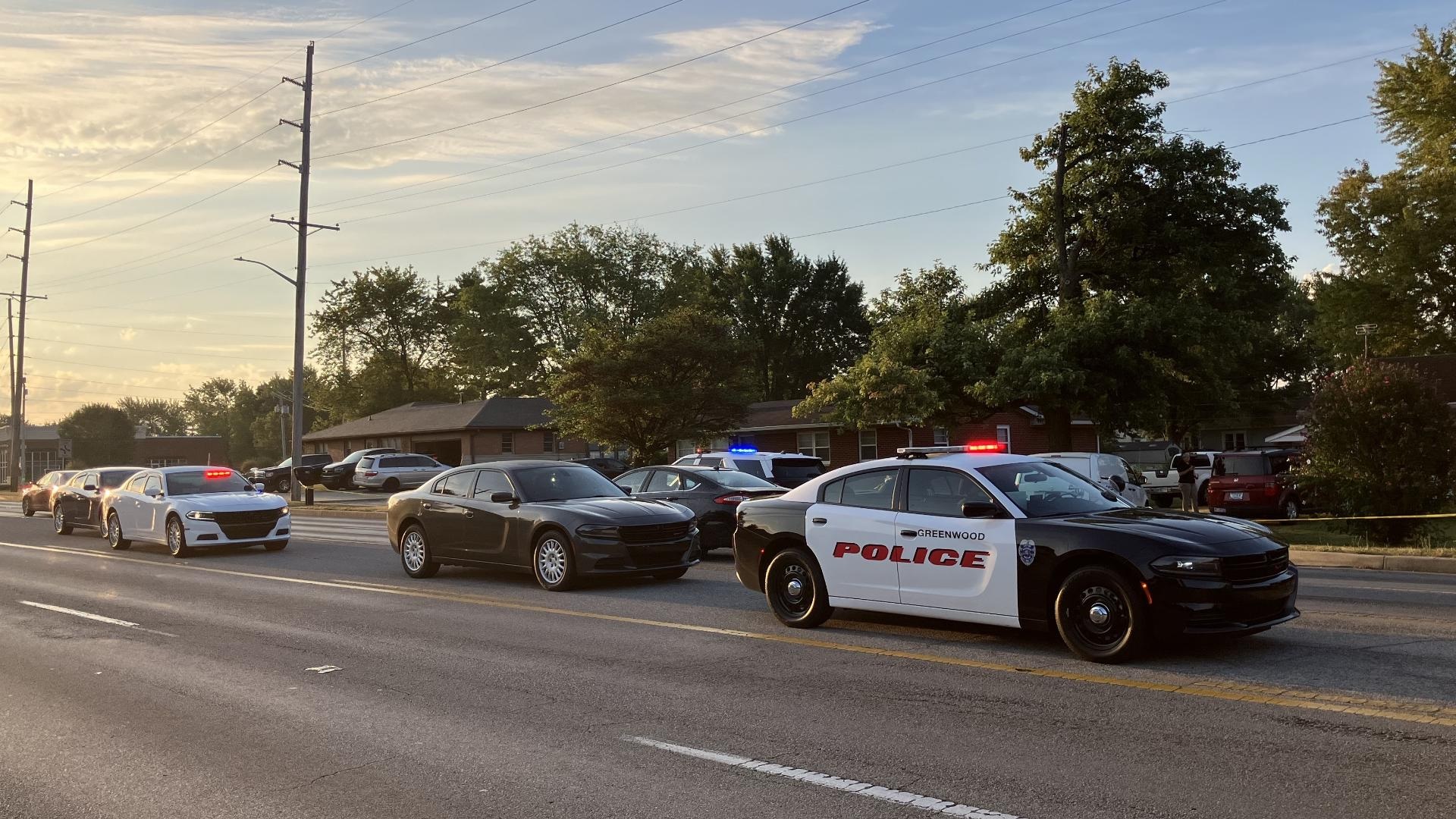In July 1995, the massacre of 8,372 Bosniaks in Srebrenica was recognized as genocide, yet many in the region continue to deny this dark chapter of history. Survivors like Nedzad Avdic share their harrowing experiences, highlighting the ongoing struggle for acknowledgment and reconciliation in a society marked by division.
Remembering the Srebrenica Genocide: A Fight Against Denial and Erasure


A Genocide That Must Not Be Forgotten
In July 1995, Bosnian Serb soldiers and Serbian paramilitaries murdered 8,372 Bosniaks in Srebrenica. The massacre is internationally recognized as genocide, but many Serbs continue to downplay these acts to this day.
Nedzad Avdic, a Bosniak from Srebrenica, vividly recalls the moment he was to be executed. It was the night of July 14-15, 1995. At 17 years old, he was led with his hands tied to a large field near a dam in Crveni Mulj, about 60 kilometers north of Srebrenica.
"I could see three silhouettes. Three soldiers stood there in the dark, and then I saw all the dead people lying around, and I was in shock," Avdic recounts. He struggles to remember how he was hit by bullets. "Everywhere I heard loud screaming and moaning. My hand hurt; it had been hit. My stomach hurt; it had been hit, and then another bullet hit my foot. I was bleeding heavily, and I thought I was going to die quickly," Avdic says.
However, because no internal organs were injured, he managed to play dead and, along with another survivor, escaped unnoticed.
Planned and Coordinated Executions
Around Srebrenica at that time, there were several mass executions. The International Criminal Tribunal for the former Yugoslavia and the International Court of Justice confirmed that the massacres in Srebrenica constitute genocide. Nearly all male prisoners from Srebrenica were shot in forests or taken to execution sites, whether or not they were soldiers.
The executions were planned and coordinated, including the disposal of the bodies with excavators in mass graves. Thus, it is reasonable to assume that the Serbian forces aimed to eliminate the entire male Bosniak population in the area.
Denial Ignored – The President Doesn’t Care
Yet many Serbs refuse to acknowledge this and deny it. Srebrenica is now located in a mainly Serb-populated area, in the Republika Srpska, the Serb-dominated entity of Bosnia and Herzegovina. The president of Republika Srpska, the Serb nationalist Milorad Dodik, denies the genocide, even though such denial is a crime under Bosnian law.
"The Army of Republika Srpska is an army of freedom. They did not commit genocide. There was a crime and convictions. But the figure of 8,000 dead is fabricated. Around Srebrenica, there were 3,600 Serbs killed since the start of the war. There was also a crime against the Serbian population," Dodik claimed during a televised speech.
Camil Durakovic, Dodik's deputy, represents the Bosniak minority in the Serb-led entity. Durakovic, who himself hails from Srebrenica, survived the flight through the woods as a teenager in July 1995 but lost relatives and friends.
He explains the insidious nature of Dodik's comparison of death tolls: "When Serbs mention over 3,000 killed, they refer to the entire region, over three years of war, including fallen soldiers and civilians. Then we would have to talk about 50,000 killed Bosniaks, but we are always only speaking of the over 8,000 dead from Srebrenica in July 1995. The Serbian narrative is about finding some form of balance. But justifying a crime is itself a crime," says Durakovic.
A Non-Issue in Banja Luka
About four hours by car northwest of Srebrenica lies the capital of Republika Srpska, Banja Luka. The 30th anniversary of the genocide is not a topic here. There is no memorial, no exhibition, no poster, nothing. In schools, the genocide of Srebrenica is a taboo subject.
In the pedestrian zone of Banja Luka, two 13-year-old schoolgirls share that they have learned nothing about the Bosnian War; they have only studied World War I and II. One of the girls states, "I’ve heard something about Srebrenica. I believe it was a genocide against the Serbs, right?"
A Missed Opportunity?
The denial of the dark past is typical for Republika Srpska, says Aleksandar Trifunovic, a journalist from the government-critical news portal Buka in Banja Luka. Trifunovic is one of the few Bosnian Serb reporters covering the Srebrenica genocide and conducting interviews with Bosniak survivors. He has faced insults and threats for his work.
"The process of coming to terms with the past is not easy," says Trifunovic. In his opinion, the international community should have prioritized addressing this issue. "We Serbs do not confront the truth—just as the Germans did with their Nazi past, which is the best example. Here with us, time simply passes, and we lack the intellectual capacity for this topic, nor do our universities engage with it," Trifunovic states.
"They Deny Us and Our Identity"
Nedzad Avdic, who narrowly survived the genocide in Srebrenica, must live with the reality that the past remains unaddressed. He now lives back in Srebrenica, where the population is half Bosniak and half Serb. However, Srebrenica, like all of Republika Srpska, is administered by Serbs, which makes life difficult, Avdic says.
"If someone believes that the genocide is over when the shooting stops, they are mistaken. They deny us and our identity. The day I can go into my children's school and openly tell them what happened to me back then is when progress will be made. But that is not possible. For them, there was no genocide; for them, nothing happened," Avdic remarks.
Similar sentiments are echoed by Almasa Salihovic. As an eight-year-old, she survived the Srebrenica genocide but lost her older brother. Today, she works at the Potocari Memorial Center, where white gravestones stand for the 8,372 victims.
"One can coexist with Serbs here as long as one doesn’t talk to them about it. And when you do share your fate, they act as if you are accusing them. From Serbs, you mostly hear that this war brought no good to anyone. As a survivor of the genocide, one cannot be satisfied with such a statement."

 বাংলা
বাংলা  Spanish
Spanish  Arabic
Arabic  French
French  Chinese
Chinese 



